Humans
Sign up for our newsletter
We summarize the week's scientific breakthroughs every Thursday.
-
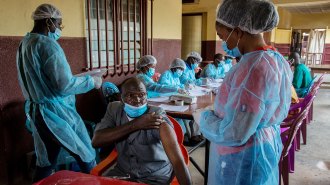 Health & Medicine
Health & MedicineThe latest Ebola outbreak may have started with someone infected years ago
Rather than stemming from a virus that jumped from an animal to a person, this outbreak might have originated from someone who had a dormant virus.
-
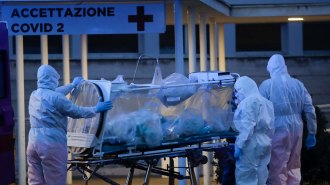 Health & Medicine
Health & MedicineSome COVID-19 survivors face another foe: PTSD
The rate of post-traumatic stress disorder among survivors of severe COVID-19 is comparable to the rate among survivors of some natural disasters.
-
 Archaeology
ArchaeologyA tour of ‘Four Lost Cities’ reveals modern ties to ancient people
In the book 'Four Lost Cities,' author Annalee Newitz uses cities of the past to show what might happen to cities in the future.
-
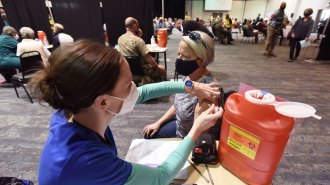 Health & Medicine
Health & MedicineThe COVID-19 pandemic is now a year old. What have scientists learned?
As we enter the pandemic’s second year, researchers share what they’ve learned and what they look forward to.
-
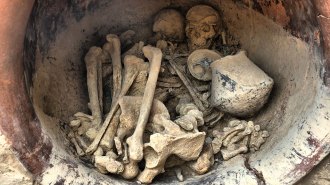 Anthropology
AnthropologyRiches in a Bronze Age grave suggest it holds a queen
Researchers have long assumed mostly men ran ancient Bronze Age societies, but the find points to a female ruler in Spain 3,700 years ago.
By Bruce Bower -
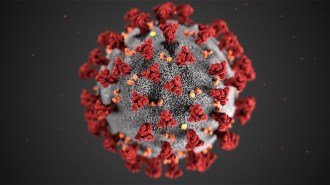 Health & Medicine
Health & MedicineA year ago, we asked 6 questions about COVID-19. Here’s how the answers evolved
A year after launching our Coronavirus Update newsletter, we revisit the first topics we wrote about.
-
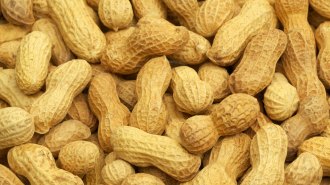 Health & Medicine
Health & MedicineAn experimental toothpaste aims to treat peanut allergy
By rolling an immune therapy into a toothbrushing routine, a company hopes to show its product can help build and maintain tolerance to allergens.
-
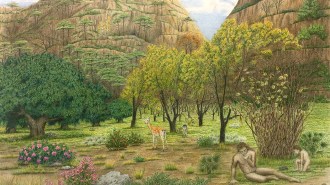 Anthropology
AnthropologyFinds in a Spanish cave inspire an artistic take on warm-weather Neandertals
Iberia’s mild climate fostered a host of resources for hominids often pegged as mammoth hunters.
By Bruce Bower -
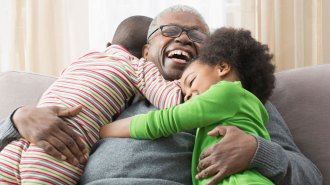 Health & Medicine
Health & MedicinePeople fully vaccinated against COVID-19 can socialize without masks, CDC says
Two weeks after their final COVID-19 shot, people can visit other vaccinated people indoors without masks or physical distancing.
-
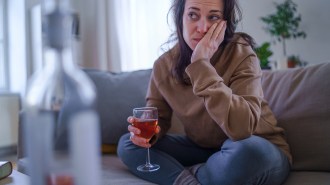 Health & Medicine
Health & MedicineCOVID-19 has exacerbated a troubling U.S. health trend: premature deaths
The pandemic played into already rising death rates from obesity, drugs, alcohol and suicide.
By Bruce Bower -
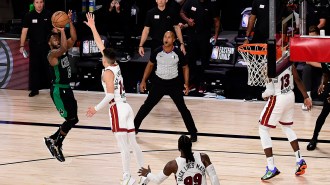 Health & Medicine
Health & MedicineMost pro athletes who got COVID-19 didn’t develop heart inflammation
Few professional athletes developed heart inflammation after a bout of COVID-19, but how the findings relate to the general public isn’t clear.
-
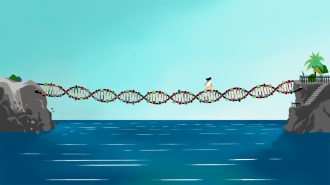 Genetics
GeneticsDNA databases are too white, so genetics doesn’t help everyone. How do we fix that?
A lack of diversity in genetic databases is making precision medicine ineffective for many people. One historian proposes a solution: construct reference genomes for individual populations.